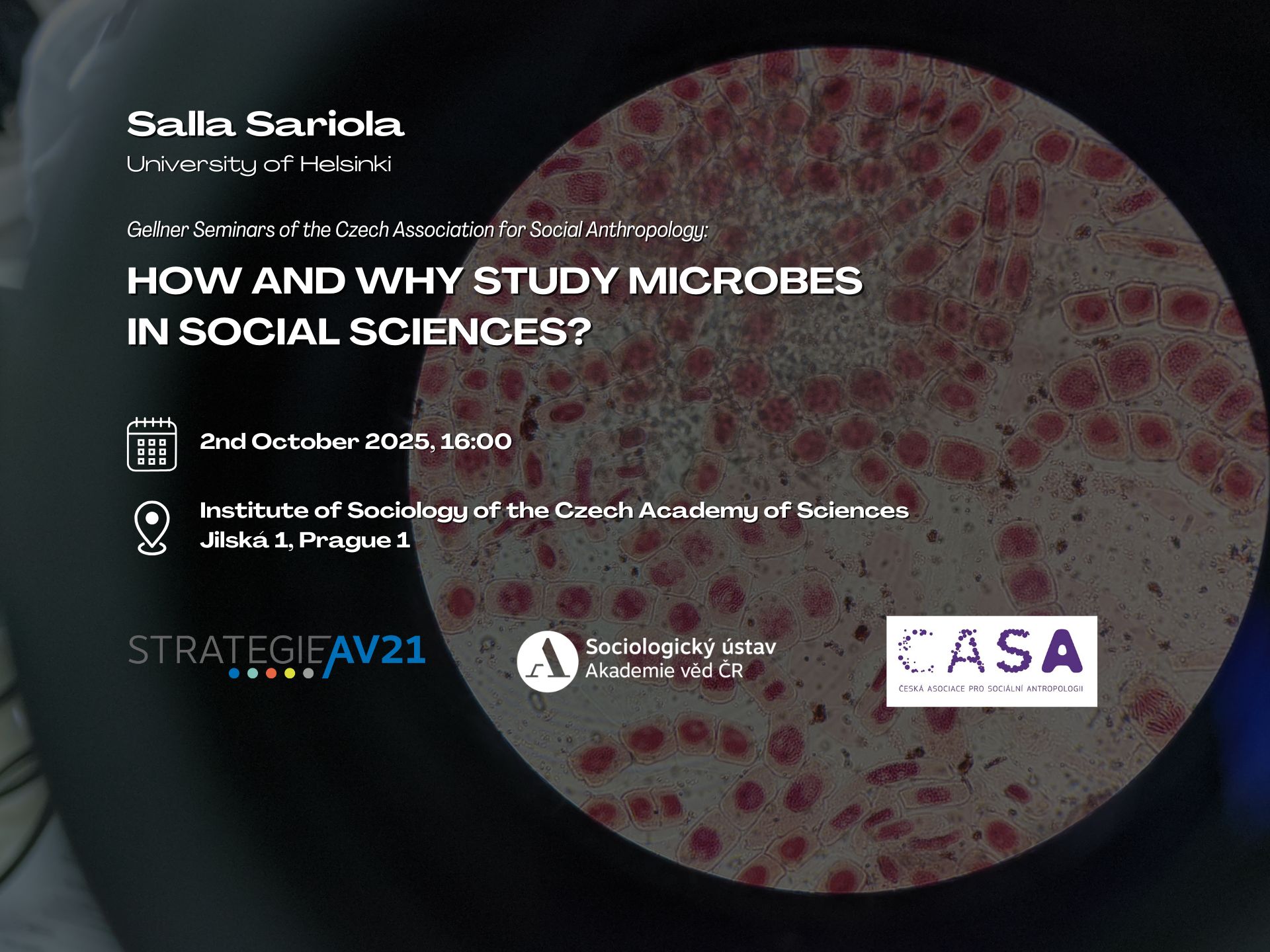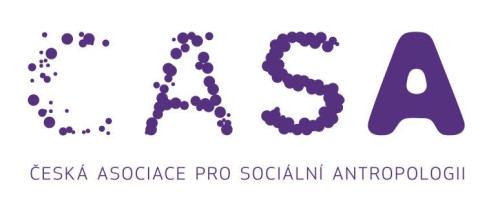The Institute of Sociology invites you to a lecture by sociologist Sally Sariola. The event will take place within the framework of the Gellner Seminars of the Czech Association for Social Anthropology.

Human-microbial relations are becoming a subject of interest to social scientists. This has followed novel findings from within microbiology about the abundance of microbes in and on humans and discoveries suggesting that microbes are crucial for planetary flourishing across different scales. This talk will describe the nascent field of social study of microbes and the challenges that studying microbes pose for social sciences. The Centre for the Social Study of Microbes (CSSM) at the University of Helsinki, Finland, has developed methods and theories to study these miniscule yet ubiquitous, short-lived yet ancient beings. During the talk CSSM Director Salla Sariola will describe the methodological and theoretical work of CSSM to discuss why study microbes and what is at stake in this line of research.
Salla Sariola is a Professor of Sociology at the University of Helsinki. Her current research interests include antimicrobial resistance and fermentation. She is developing more-than-human theory of fermentation based on fieldwork in Assam, India, which she is in the process of writing a book about (Bristol University Press). She is also leading a large interdisciplinary research programme on antimicrobial resistance research in Benin and Indonesia.
Her past research between sciences and various publics interfacing around international collaborative research and global health programmes has taken her to India, Sri Lanka, Kenya and West Africa. She is the author of four books: With Microbes (with Brives and Rest, Mattering Press 2021); Ethics and Politics of Community Engagement in Global Health Research (with Reynolds 2022); Research as Development: Clinical trials, international collaboration and bioethics in Sri Lanka (with Simpson, Cornell University Press) and Gender and Sexuality: Selling sex in Chennai (Routledge 2009, 2012).
Possibility to join online via Zoom.
